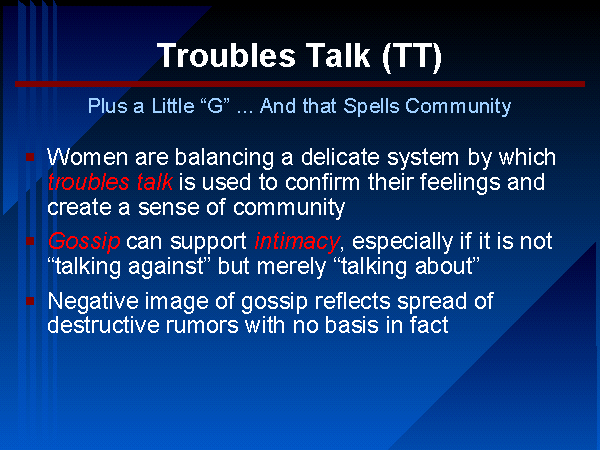





 Notes:
Notes:
These points are paraphrased from pages 59, 96, 104 of Dr. Tannen's book. By "troubles talk," she means conversation in which one person's report of personal troubles is mirrored by another's report of similar troubles. By contrast, gossip is conversation about someone else in circumstances with which one has no direct, personal knowledge. In legal terms, that's the distinction between hearsay and eyewitness testimony, both of which are notoriously unreliable without corroborating evidence.
In terms of knowledge management, by defintion, gossip is tacit knowledge, even when it is "documented" (e.g., printed in the tabloids or gossip pages) -- because it is unsubstantiated. Gossip that has been substantiated by incontrovertible evidence ceases to be gossip.
Dr. Tannen suggests that non-destructive gossip is not only acceptable but perhaps even essential to intimacy and a sense of community. However, it is important to draw a distinction between the sense of community supporting social discourse versus the sense of integrity, authenticity, and reliability required to support "arm's length" business transactions. Few would feel comfortable paying hard-earned dollars for goods that, rumor has it, may be delivered at some unspecified time in the future.















